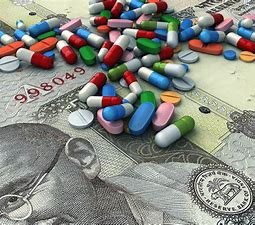Survey shows there is room for more medicines, vaccines to be produced here
07/18/2022

Brazil’s growing dependence on imported drugs led pharmaceutical companies to submit to the presidential candidates a package of proposals to foster local production of drugs and raw materials. The document entitled “Improving Health in Brazil – Industry Proposals” provides alternatives for improving rules and encourage innovation and investments.
“The solution is not to restrict imports, but to make better use of the productive base and concentrate value generation here,” says Reginaldo Arcuri, head of FarmaBrasil Group, which represents the pharmaceutical companies that operate in research, development and innovation and subscribes the document.
From January to May, according to a survey conducted by the trade group, purchases of medicines abroad grew 35% compared to the averages of 2020 and 2021, reaching $4.29 billion in absolute values this year. Compared to previous years (2015 to 2019), the increase is more significant, of 56%.
The Covid-19 pandemic has increased the most recent figures for foreign purchases. In the first two years of the pandemic, drug imports grew 15% over the average of the previous five-year period.
Still, the survey shows that there is room for more medicines and vaccines to be produced here if there was more dialogue between government and industry and public policies to encourage production in Brazil.
Brazil already has a solid production base and structural conditions on the government’s side, but these need to be improved, Mr. Arcuri says. In addition, the country is a large market driven by the national health system SUS – which provides universal health coverage – and a scientific production structure.
“Brazil can accelerate the chance of having a new world-class economic sector, but there needs to be more coordination between the private sector and the state’s structures,” he says.
In his view, the statistics make clear the growth trend of foreign purchases of active pharmaceutical ingredients (APIs), which was already known, but also of ready-made drugs considered strategic. Once a major producer of raw materials, Brazil now imports 95% of the API used in the local production of medicines.
Grupo FarmaBrasil’s survey shows that, this year, imports were driven by the 41% increase in the purchase of biotech products compared with the average of the pandemic period, and 110% compared with the average of the 2015-2019 period.
Pharmochemical products saw growth of 23% this year compared to the pandemic period and 59% compared to the average for the five years prior to the pandemic.
According to the study, 54.8% of the medicines imported by Brazil between January and May came from five countries: Belgium ($684 million), the United States ($528 million), Germany ($479 million), Switzerland ($348 million), and China ($310 million).
At the moment, Mr. Arcuri says, the local pharmaceutical industry is working on this data to find out which drugs can and should be produced locally before taking these proposals to the government.
*By Stella Fontes — São Paulo
Source: Valor International
